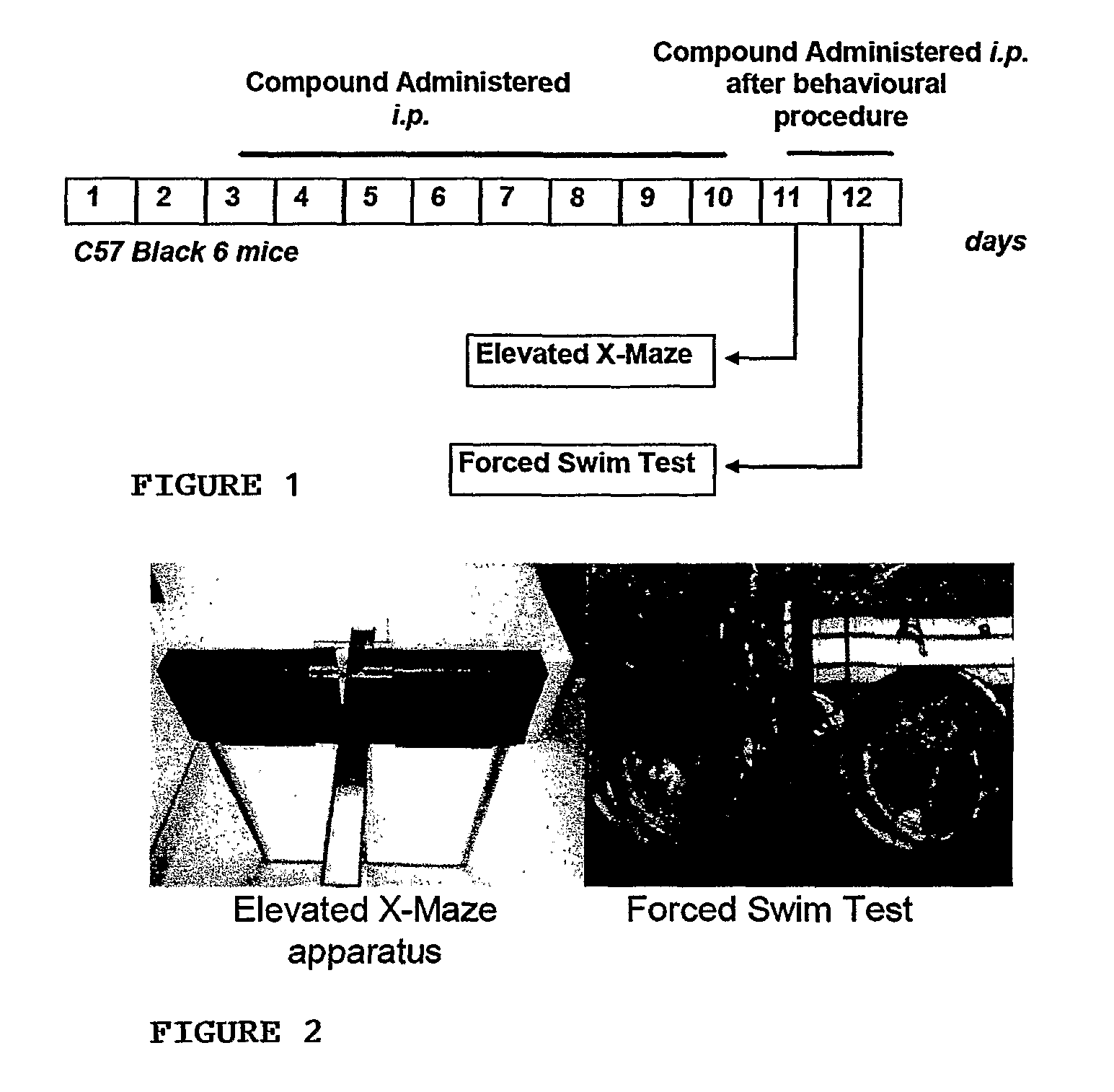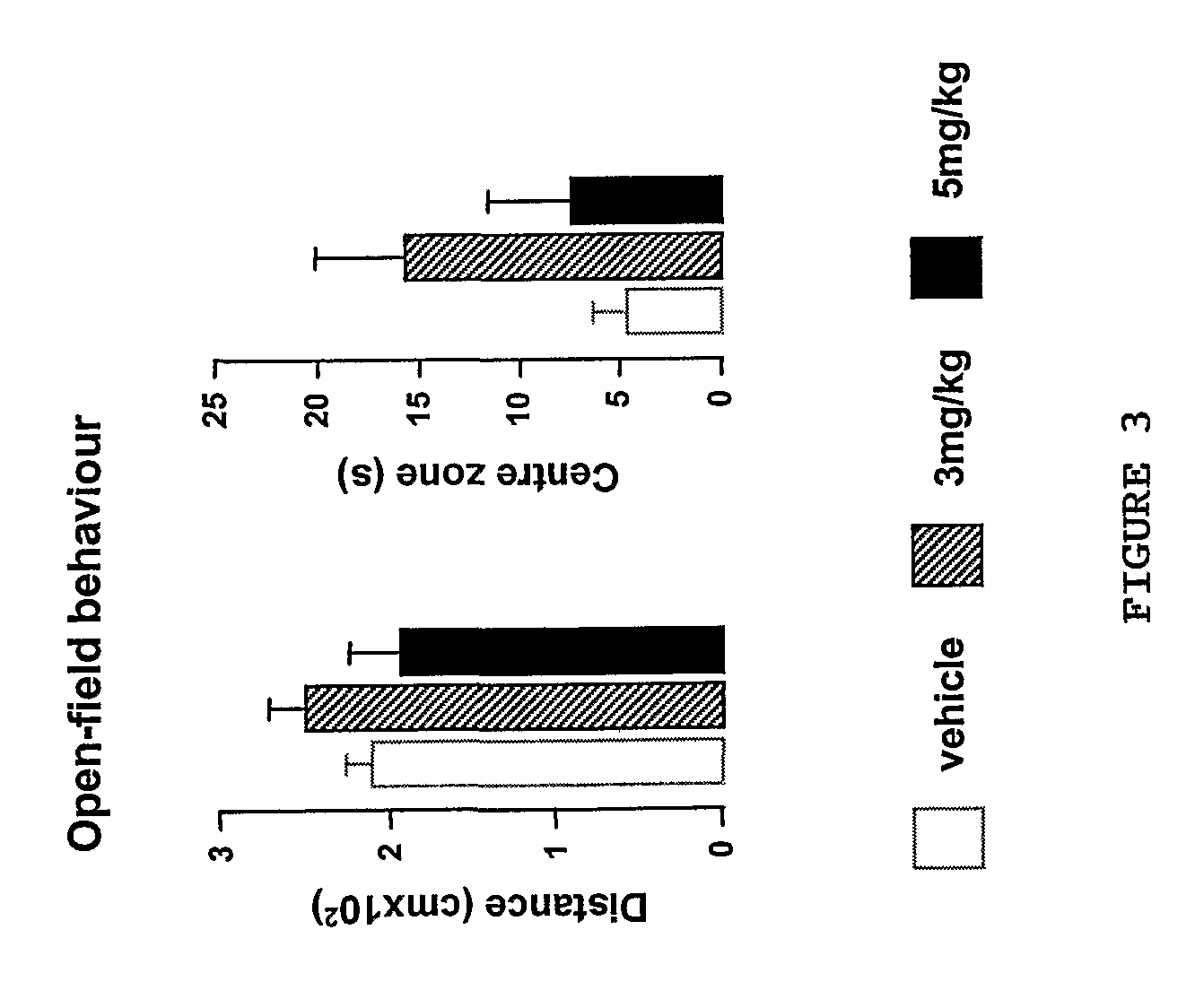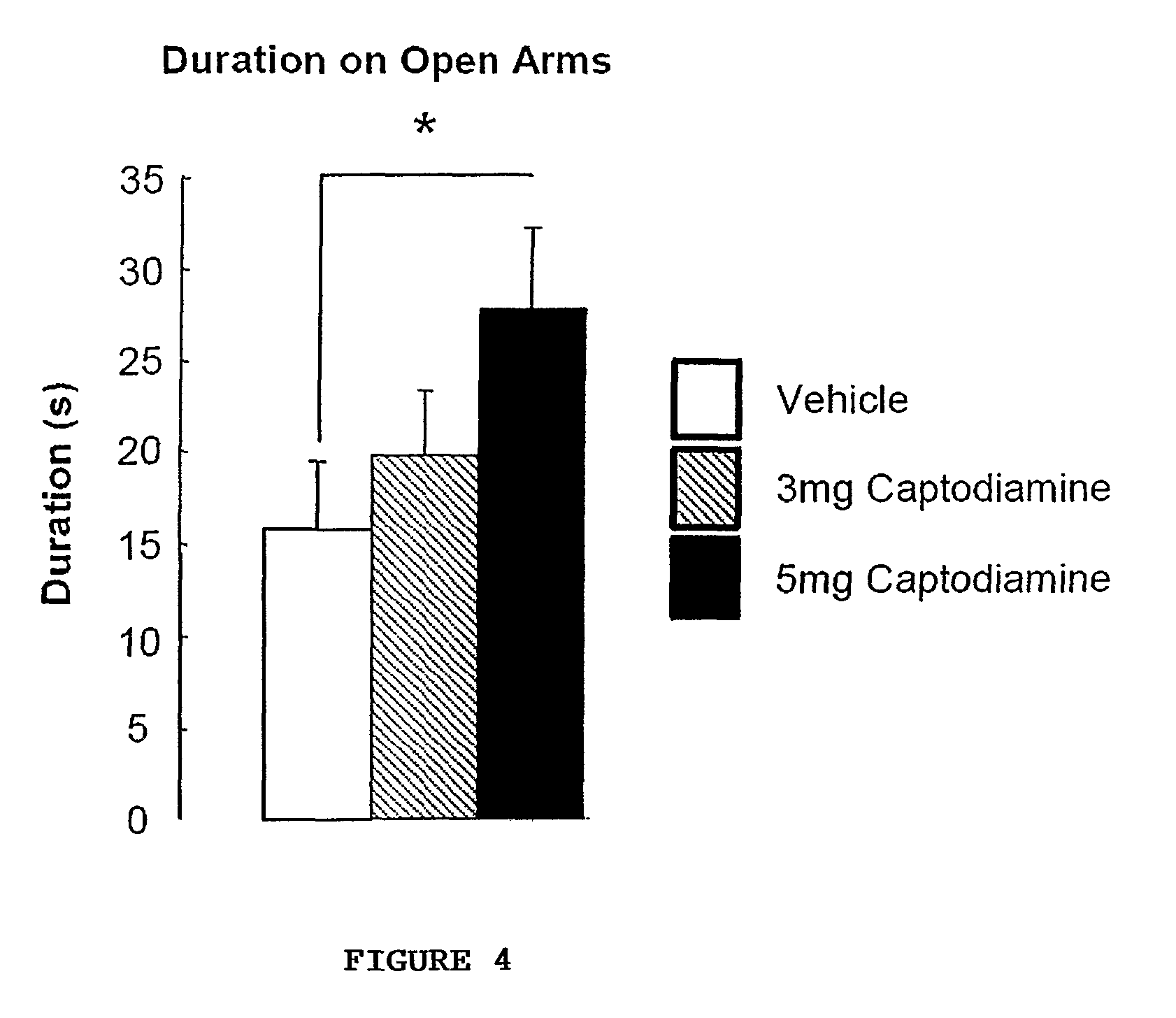Psycho-pharmaceuticals
a technology of psychopharmaceuticals and drugs, applied in the field of psychopharmaceuticals, can solve the problems of side effects and toxic side effects, increase mortality, and drawbacks of the use of available drugs, and achieve the effects of reducing symptoms, reducing anxiety, and enhancing cognitive performan
- Summary
- Abstract
- Description
- Claims
- Application Information
AI Technical Summary
Benefits of technology
Problems solved by technology
Method used
Image
Examples
example 1
Materials and Methods I
[0308]The Experimental protocol employed in the behavioural evaluation of Captodiamine is outlined in FIG. 7. Two separate cohorts of C57B16 mice were employed. Cohort 1 was used to evaluate the drug effect on prepulse inhibition, open-field and novel object recognition and spatial learning. Cohort 2 was used to evaluate drug effects on the Forced Swim Test and the Elevated X-Maze test. The behavioural tests were administered in sequence as per day number indicated in the bar. The drug was administered by the intraperitoneal route and on the day of training the drug was administered after the behavioural analysis. Captodiamine / UCD-0620 was administered at doses of 3 and 5 mg / kg. The compound was administered once daily, via the intraperitoneal route, for 7 days prior to testing and the animals were drug-free at time of training.
Psycho-Pharmacological Tests
Neurobehavioural Screening Methods
[0309]A modified SHIRPA protocol was adopted in order to provide an in v...
PUM
| Property | Measurement | Unit |
|---|---|---|
| diameter | aaaaa | aaaaa |
| diameter | aaaaa | aaaaa |
| diameter | aaaaa | aaaaa |
Abstract
Description
Claims
Application Information
 Login to View More
Login to View More - R&D
- Intellectual Property
- Life Sciences
- Materials
- Tech Scout
- Unparalleled Data Quality
- Higher Quality Content
- 60% Fewer Hallucinations
Browse by: Latest US Patents, China's latest patents, Technical Efficacy Thesaurus, Application Domain, Technology Topic, Popular Technical Reports.
© 2025 PatSnap. All rights reserved.Legal|Privacy policy|Modern Slavery Act Transparency Statement|Sitemap|About US| Contact US: help@patsnap.com



